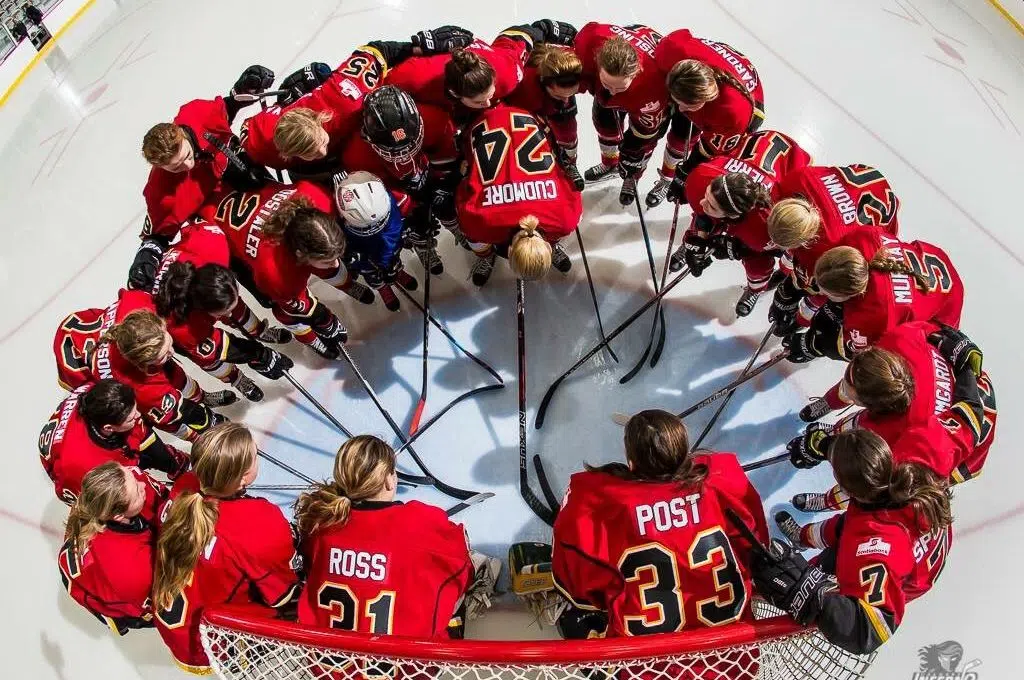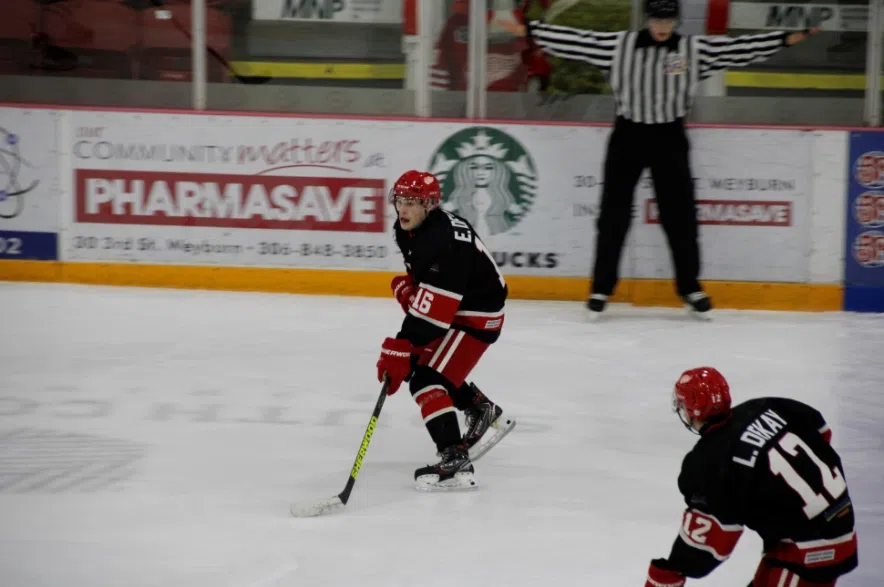It was an announcement so shocking that even the league’s general managers didn’t see it coming.
The Canadian Women’s Hockey League (CWHL) announced Sunday it would be closing its doors for good as of May 1 after operating for 12 seasons.
The news comes just a week after the CWHL final between the Calgary Inferno and Les Canadiennes de Montreal drew the largest TV viewership ever at 175,000.
University of Regina Cougars women’s hockey coach Sarah Hodges said that the folding of the league is going to affect the developing players the most.
“I think for the top-end player, like the Olympians, they’re going to find places to play so I don’t think it’s going to affect them all that much,” Hodges said Monday, “but for our players who are developing to try to get to that level, I think it could have a huge impact.”
The CWHL was a place to land for one of Hodges’ former players, goaltender Toni Ross. When she was really young, Ross dreamed of playing in the NHL – before getting a little older and realizing that wasn’t possible.
Ross said she really began to feel like she was hitting her stride once she finished her university career, and being able to go play for the Inferno was a blessing.
“(After university) it felt like I had kind of just figured it out,” she said. “I had finally gotten good is what I say in my head and it was finally becoming fun and not just stressful and my confidence was kind of coming together and I was like, ‘Well, now I can’t play anymore, it’s all over.’ So having that professional league kind of gave me a place where I could go.”
Ross moved on from the CWHL at the end of last season, opting to pursue her future outside of hockey as a nurse practitioner. But she still had some choice words when asked why there was a discrepancy between support of the men’s and women’s games.
Exposure, she said, was one problem.
“It’s pretty evident that most people will pay upwards of $200 to watch an NHL team that, I don’t know, is on an 11-game losing streak but they won’t pay the $20 to go watch 17 Olympians battle it out on the ice. I think there’s attitudes that need to change,” she said.
Those sentiments were echoed by her former head coach. Hodges said women’s hockey is treated way differently than men’s hockey even though both are exciting sports.
“There’s comments, there’s the way people treat it without really experiencing it first. I think that’s the biggest frustration,” Hodges said. “I think if people went out to watch the game and learn to appreciate it for it being a different sport than men’s hockey – because it is – then there might be a great appreciation for it.”
However, both women still have hope for the future of women’s professional hockey. While the National Women’s Hockey League (NWHL) is talking about taking over some of the Canadian franchises, Ross hopes for more – that the NHL might step up and help the women’s game as the NBA did in basketball.
“And create a league that will be something that can be someone’s full-time job and then we can really see how great women’s hockey can be,” she said.







